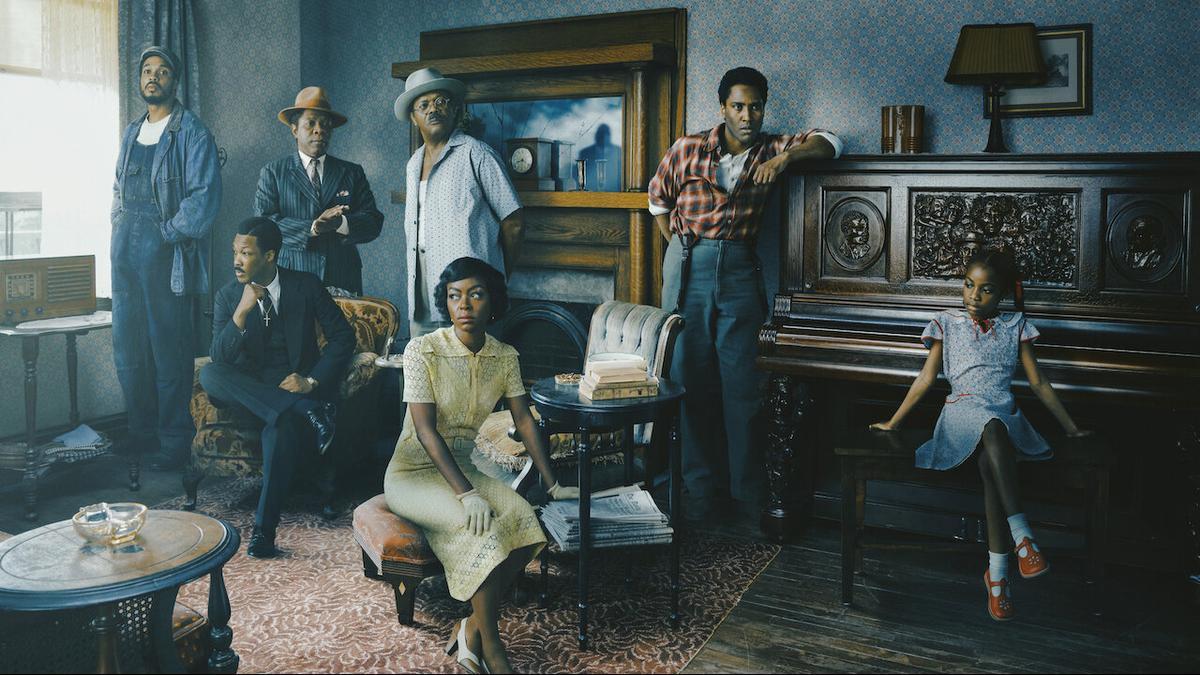
It appears that there’s an emerging trend in the Malayalam film industry to bestow films with names that challenge pronunciation prowess. Hot on the heels of the linguistic workout that was ‘Agathokakological’, comes ‘Anchakkallakokkan’. Helmed by director Ullas Chemban, the title ‘Anchakkallakokkan’ is not simply for the sake of intricacy but comes with its own cultural baggage. It’s described as a mythical creature, the kind whose legend is woven into childhood stories, evoking fear and wonder. This creature’s lore is tightly woven into the plot, affecting the main character, Vasudevan, played by Lukman Avaran — a newcomer to the police force stationed in an unnamed village precariously positioned along the Kerala-Karnataka border.
The tale that unspools follows young Vasudevan as he assumes his duties, virgin to the politics and undercurrents of a settlement where secrets are shared only because everyone is familiar with one another. Unlike his ambitious counterparts, Vasudevan carries a palpable fear of violence—a phobia fleshed out by his backstory. His knees buckle at the sight of blood, and a rookie mishap sees him ensnared in a trap intended for wildlife, a rough start compounded by the village’s unrest fueled by the murder of Chaapra, an influential landlord.
Unfortunately, the film, while ambitious, seems to wander away from its lead, causing Vasudevan’s presence to dim until he nearly vanishes from the narrative before being hastily pulled back for the conclusion. This erratic focus is a key reason the movie stumbles, notwithstanding the sprinkle of stylistic elements and a set of characters that deviate from the norm. The screenplay feels disordered and scattershot, rendering the characters, including the intimidating sons of Chaapra who inspire both fear and awe, into fleeting memories that fail to resonate.
The film’s saving grace could have been its technical execution, which shines through the narrative’s cracks, particularly during a couple of elaborate action scenes that drive the film forward, especially a protracted one unfolding in a police station, which painfully overstays its welcome. Yet these moments, though crafted with finesse, lack the necessary punch to fully engage the audience. In an attempt to inject a vibe of pulp fiction into the narrative, there is an exchange that reflects this ethos when Nadavaramaban, another police officer portrayed by Chemban, confronts a detainee with a meta quip about attacking an officer as if he’s in a pulp novel.
Even with these attempts at creativity and the film’s occasional stylistic feats—like a standout moment involving the fearsome brother duo and an old tape recorder—most of these flourishes seem superfluous and disconnected from the storyline. They emerge as decorative rather than functional, leaving the core narrative untouched and the character developments thin.
Despite these shortcomings, the movie presses on, screening in theaters and contributing to the vast and varied landscape of Malayalam cinema. It stands as a testament to the industry’s willingness to experiment and push boundaries, though not always achieving the success one might hope for.
Furthermore, ‘Anchakkallakokkan’ is an example of how storytelling and character arcs are vital to the fabric of a film. Style and technical prowess, no matter how impressive, cannot fully salvage a film that falls short on narrative depth and emotional connection. It’s a lesson for filmmakers and audiences alike: a movie may captivate our senses briefly with its aesthetics, but it’s the strength of its story that leaves a lasting impact. As ‘Anchakkallakokkan’ runs its course in cinemas, it leaves behind a clear message about the indispensable elements that make a film truly resonate with its viewers.










